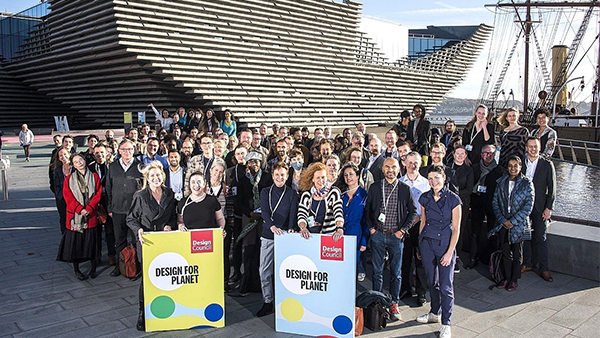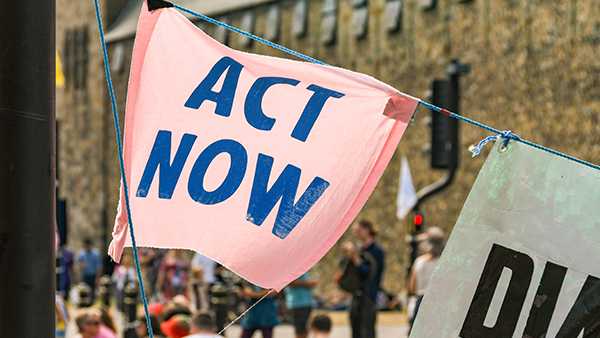One of the challenges of blogging (so I’m told) is to see how many strands can be incorporated in the smallest number of words. Today I want to cover:
One of the challenges of blogging (so I’m told) is to see how many strands can be incorporated in the smallest number of words. Today I want to cover:
All in 350 words (obviously, this doesn’t include this bit). Here we go:
We will be wishing Ed Miliband well today as he tries to persuade other EU countries to sign up to an ambitious carbon emissions reduction target. Climate change really emerged as a key national policy priority during my time in Number Ten. I remember one particularly important meeting with TB when he endorsed a ‘wedge’ approach (I think that was what it was called), in which Government backed many different interventions; partly because progress demanded we use every tool in the kit but also because we couldn’t tell which method would turn out to be the most effective. So nuclear power would be pursued, along with renewables, along with action to reduce industrial and domestic energy consumption, along with backing new energy efficient technologies etc.
But this plural approach to policy interventions needs to be matched by a plural approach to human agency. Last night we had a lively debate as part of the WWF-UK series on values and sustainability. Three speakers – Jules Peck, Bishop James Jones and Professor Tim Jackson – said sustainability requires a revolution in values led by pioneers willing to live very different lives. Our contrarian was David Aaronovitch. He argued that the green movement does itself no favours when it is associated with self righteousness and a censorious attitude to the behaviour of non-greenies, particularly the aspirations of the less well off.
If I’d had the chance to make a point I would have talked about cultural theory saying that a plural approach to sustainability should mobilise not just the egalitarian instinct of confirmed greenies but also hierarchical interventions (like the EU agreement) and individualism. Only by mobilising all the ways that people think about and act on change can we tackle the popular default on climate change which is fatalism (‘what difference can I make?’).
One of the examples cultural theorists give of a failed solution is Kyoto which was a hierarchical intervention lacking any story of how to tap into individualist sentiment or tackle fatalism. This afternoon I am off to a cultural theory seminar at the LSE. It will be interesting to see what is said about sustainability.
Related articles
-
Regenerative organisations: the time is now, the place is here
Joanna Choukeir
Regenerative organisations are vital to our regenerative future. The time is now for the RSA to emerge as such an institution.
-
A design revolution for the climate emergency
Joanna Choukeir
Joanna Choukeir on Design for Planet, the global gathering of designers during COP26, and the changes design must make.
-
The public are ready to go further and faster on net zero
Anthony Painter
The public are ahead of policy-makers and, indeed, most of the business world. COP26 is an enormous opportunity to catch up. Global leaders should take it.




Join the discussion
Comments
Please login to post a comment or reply
Don't have an account? Click here to register.
Oh.... and the link for that Chico Mendes talk is here.
"If I’d had the chance to make a point I would have talked about cultural theory saying that a plural approach to sustainability should mobilise not just the egalitarian instinct of confirmed greenies but also hierarchical interventions (like the EU agreement) and individualism. Only by mobilising all the ways that people think about and act on change can we tackle the popular default on climate change which is fatalism (‘what difference can I make?’)."
I'm not entirely sure that you're right in categorising "confirmed greenies" as egalitarians. Or that the problem is mobilising heirachical interventions like the EU agreement. The difficulty with the recent negotiations at Poznan and Brussels over a European climate plan is that they are heirarchical without having a popular base. And while the green movement thinks of itself as egalitarian, its failure to engage the popular imagination is maybe something to do with the fact that in reality it's more individualist. I think the upcoming RSA Arts & Ecology talk on Chico Mendes next year will be interesting on this because though he's categorised as an "environmental" hero, he was really primarily interested in defending his and his community's future as rubber tappers. The egalitarian impulse came first. Of course the solution was to create sustainable rubber reserves in the Amazon - a green solution. I'd argue that until the green movement does incorporate more genuine egalitarian approaches, it's going to be identified just as one special interest group among many - which leads to the kind of bodge we saw last week in Brussels.
Matthew -= climate change - we spoke in manchster
By coiincidence a colleague pointed me in the direction of a somewhat obscure bit neverthless interesting piece by a guy called B.Alcott in the journal Ecological Economics.It is entitled 'would rich world frugality lower environemental impact'?.
In a nutshelll he looks at the consumption rebound effect by which it is argued that if we consume less ,demand drops,prices are lowered and other people therefore enter markets and consume what we previously did.he says 'marginal consumers take up the slack left by newly frugal people who have left the market.He fears that voluntary behaviouir change will do little other than to shift around patterns of consumption.So if we 'all do our bit', we wont be well- it needs strong and muscular governnace and action at all levels.Waht voluntray actions do is give us an idea of what the future might look and how things might need to change - but they are not the change itself.And of course I wuld add public and publicised changes in behaviour can shift opinion and mobilise people to pressure governments to change.
I also recently listed to George Marshall from Oxford (here in Manchester) argue that we need to turn much more to the behavioural sciences and what they have to tell us about what prompts changes in human behaviour - what we know works, as opposed to what we would like to beleive should work such as shroud waving, pictures of cuddly polar bears and 'we're all doomed' scenario painting.
I am hoping to get some RSA members interetsed in some work on this topic - the disconnect between the scientific community and the community of academics and policy makers who may have something to say on where we go with this issue.